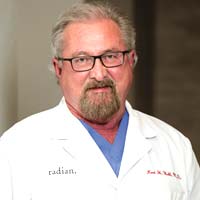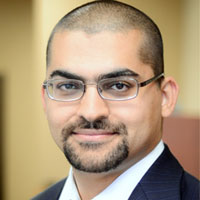More People Heading to Turkey for Hair Transplants
Hair transplant doctors have found themselves in the midst
of a booming business. So many men and women across the globe are not only
finding that their hair is thinning or they are becoming bald, but they are
also aware that they no longer have to suffer in silence. Options exist, and
can now be affordable as well for hair transplants.
This permanent solution to hair loss is typically costly in
the U.S. due to high doctor fees, insurance premiums, etc. However, overseas,
where the medical market is setup much differently, people have found that
traveling to outside destinations means they can still get a wonderful hair
transplant, at only a fraction of the cost.
Turkey is one location that has boasted a recent uptick in
foreign patients traveling to the region for their hair transplant needs.
‘Medical tourism’ is the phrase that’s been coined to define
the phenomenon and according to one report,
“of the estimated 310,624 hair restoration procedures performed worldwide in
2012, Europe has witnessed the biggest increase in the number of procedures
with 54,343 procedures performed in 2012 — a 39 percent increase from 2010.”
Turkey is the location for a number of premier surgeons
already skilled in hair restoration from FUE hair transplants to even more
modern procedures like eyebrow and beard hair transplants. Hospitals in the
region are also no stranger to surgery procedures. The hospital EstesWorld,
serves more than 6,000 hair transplant patients a year and has over 15 years of
experience under its belt.
Hairfear - 2-23-2014
Facts about Turkey
- Turkey is bordered by eight countries: Bulgaria, Greece, Georgia , Armenia, Nakhchivan,Iran, Iraq and Syria. The Mediterranean Sea is to the south; the Aegean Sea to the west; and the Black Sea to the north. The Sea of Marmara, the Bosphorus and the Dardanelles demarcate the boundary between Thrace and Anatolia; they also separate Europe and Asia. Turkey's location at the crossroads of Europe and Asia makes it a country of significant geostrategic importance.
- Tourism in Turkey has experienced rapid growth in the last twenty years, and constitutes an important part of the economy. In 2013, 37.8 million foreign visitors arrived in Turkey, which ranked as the 6th most popular tourism destination in the world; they contributed $27.9 billion to Turkey's revenues.
- According to Airports Council International, The new (third) international airport of Istanbul is planned to be the largest airport in the world, with a capacity to serve 150 million passengers per annum. Turkish Airlines, flag carrier of Turkey since 1933, was selected by Skytrax as Europe's best airline for four consecutive years in 2011, 2012, 2013 and 2014. With 262 destinations worldwide, Turkish Airlines is the fourth largest carrier in the world by number of destinations as of 2014.
- Turkey has a very diverse culture that is a blend of various elements of the Oguz Turkic, Anatolian, Ottoman and Western culture and traditions, which started with the Westernisation of the Ottoman Empire and still continues today.
-
Turkish cuisine is largely the heritage of Ottoman cuisine, which can be described as a fusion and refinement of Central Asian, Caucasian, Middle Eastern, Mediterranean and Balkan cuisines
Map of Turkey
Images Around Turkey
|
The Lion Gate at Hattusa
 |
The Hagia Sophia
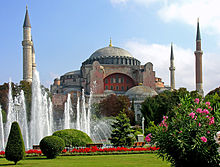
|
|
Turkish Riviera
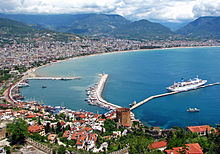
|
Mevlana Museum in Konya
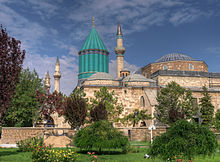 |
| The Blue Mosque
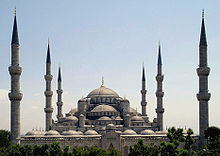 |
Whirling Dervishes of the Mevlevi Order
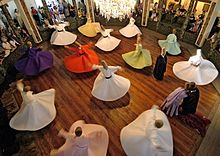 |
Images courtesy of Wikipedia
Frequently asked questions about hair transplant procedures
How much does a hair transplant cost?
Hair transplants can vary in price based off of the area in the world that you are interested in getting a hair transplant as well as the size of the area where you may need a hair transplant. Experienced doctors in the United States will often charge some of the highest prices for a hair transplant worldwide and this is why so many travelers make the move to other parts the world like Turkey, India, Thailand, Mexico...etc for their hair transplants.
Will a hair transplant hurt?
Although hair transplants may look like a particularly
unpleasant or painful experience is actually very little discomfort involved
with the surgery itself. Hair transplants are always done under an anesthetic so there's absolutely zero pain during the treatment itself. Many people actually relate the process as being very similar to going to the dentist for filling or root canal. Mild pain can persist over the course of postop treatment but he generally just resumes for a few days.
Who can deliver the best surgery?
It's usually best to consider working with surgeons who have and IAHRS certification or international alliance of hair restoration surgeons recognition. IAHRS can often deliver recommendations for the best surgeons in each particular area.
Is this scarring noticeable?
Any type of hair transplant will require the use of incisions throughout the scalp. There can also sometimes be a small scar from the donor area towards the back of the scalp. Asking to look at photos of the surgeon's previous work will help you to see roughly how bad the scarring could be. In most cases an experienced professional can limit the look of scarring and noticeable marks from the surgery.
How long does it take for the hair to grow?
In most cases hair growth will start within eight months and you can start to see a full effect from the hair transplant after a full year. The initial signs of growth can usually start between 3 to 4 months after the surgery.
Are the results permanent?
The hair follicles that are transplanted are generally the ones which are genetically resistant against the symptoms of baldness. As long as you receive hair loss treatment later in your life after the symptoms of balding have started to subside, you can have a better chance at permanent results.
While everyone know you've had surgery?
If you want to limit the chance that people may find out about your surgery it's important to give at least three weeks of healing as the surgical area will be affected and red just after surgery. After around a month of healing it can look far less noticeable. You could consider wearing a hat while time passes or opting for some extra time off if possible.
How long should I rest after surgery?
It's recommended to rest for at least a few days after surgery so that your body can recover. Trenton to over exert yourself and limit sexual activity, running in the gym for around 10 days after surgery.
Is it possible to lose more hair as a result of surgery?
There is always a chance of shock loss which happens when the hair is weak and miniaturizing after the surgery. As long as the surgeon is choosing the correct hair follicles and performing the surgery well it's possible to minimize the chance of this happening however.
Will I need another hair transplant?
The need for another transplant really depends on the individual. With a solid foundation surgery and working to potentially bolster results with drug therapy, you can improve the stability of the hair that was transplanted as well as prevent further loss. Getting a hair transplant early
on in your 20s or early on in life could lead to needing long-term transplants as hair loss can be progressive.








